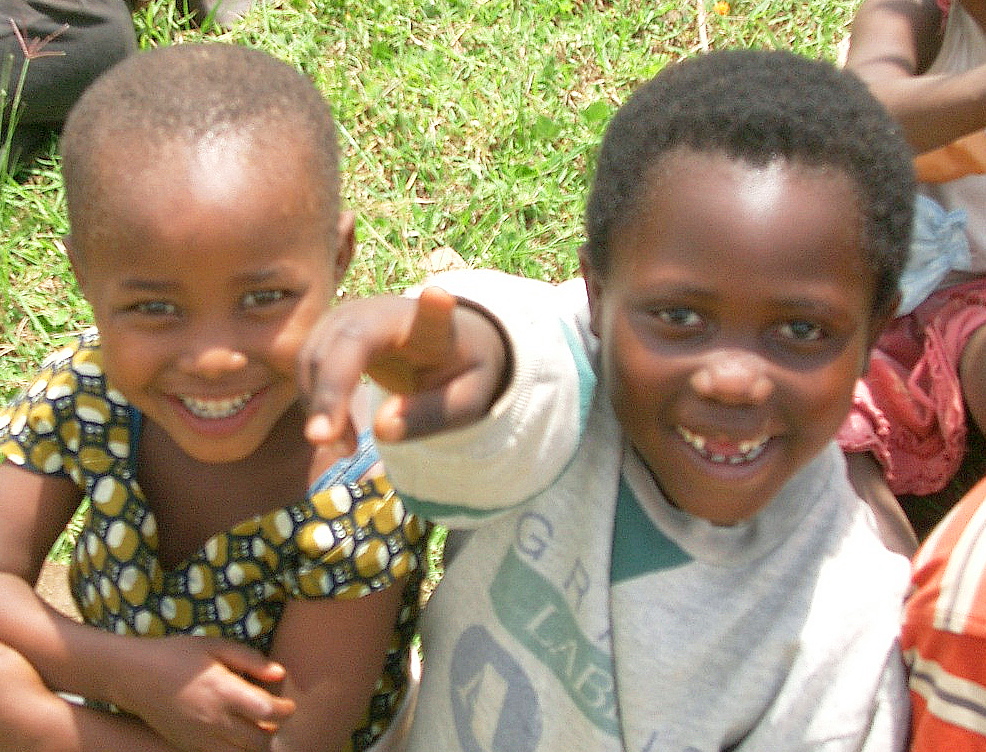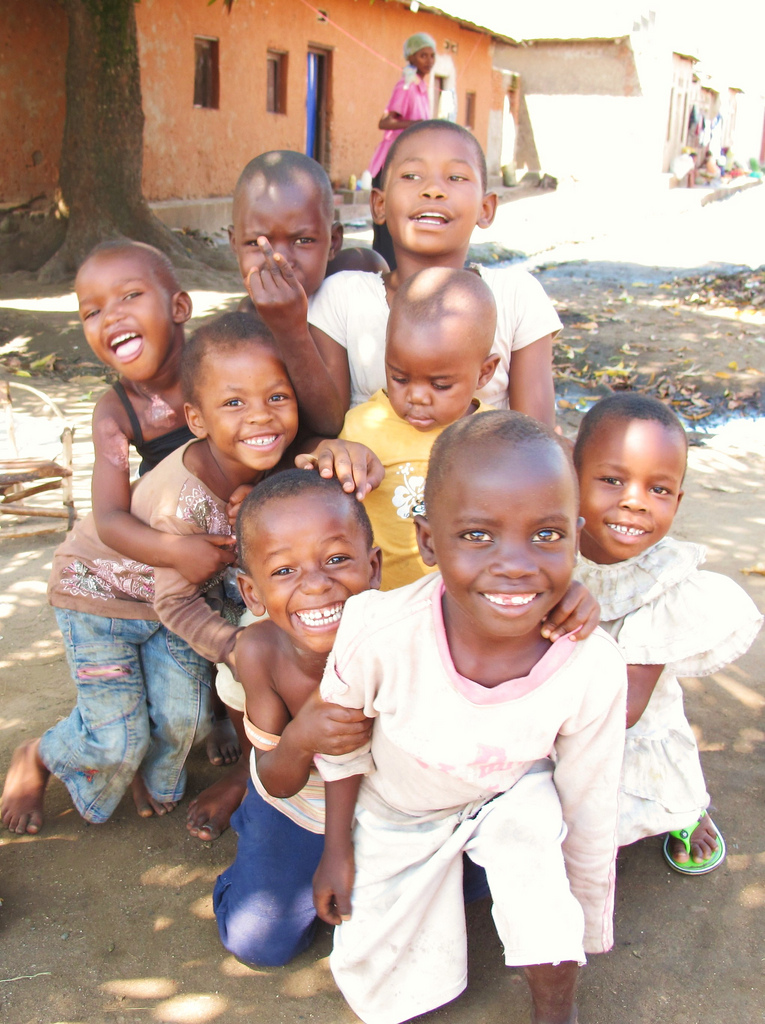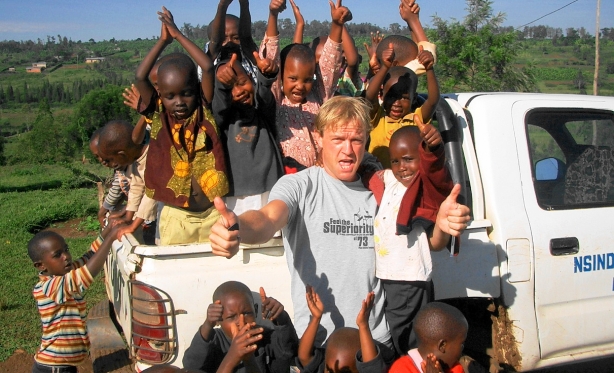Skilling Up in Africa | ICAEW Accountancy Magazine 01.07.2009
ICAEW Accountancy Magazine interviews AfID founder Neil Jennings on setting up Accounting for International Development and volunteering in Rwanda.
International l Aid Agencies and Charities desperately want professional financial expertise. Now you can help change lives abroad while maintaining your own.
l Aid Agencies and Charities desperately want professional financial expertise. Now you can help change lives abroad while maintaining your own.
When Neil Jennings volunteered in Africa, helping a small Rwandan children’s charity to run sustainable development projects across the country, his goal then was to ‘rebuild confidence, unlock potential and instil a strong sense of direction’ in local staff.
Today, those are also the goals at the heart of his new social enterprise, Accounting for International Development. Supported by a grant from the Millennium Awards Trust, AfID places experienced accounting professionals with non-governmental organisations (NGOs) across sub-Saharan Africa.
Placements of anything from two weeks to six months support long-term projects to strengthen financial management and planning among small, grass-root community-led organisations. Projects include, for instance, micro-finance schemes, rural cooperatives, education and street child centres.
‘In the past, so many skilled people have said to me they’d love to volunteer abroad but can’t spare the time from their business or family commitments,’ says Jennings. ‘Our approach to short-term placements overcomes those barriers.’
Jennings is not only aiming to match volunteer skills properly with NGO needs. Unusually, he is also setting out to actively promote partnerships between a number of NGOs within a local area so that they can share resources, including the expertise of AfID’s volunteers, and reduce costs. Such collaboration is not as common as you’d expect.
For all these reasons, AfID’s website will be very important, and not least in ensuring efficient handovers between volunteers and progress monitoring by NGOs and their UK sponsors. Full project details and updates, photos and Google map locations will be accompanied by daily blogs and work-diaries. ‘The idea is to champion best practice, accountability and the continuity of projects,’ says Jennings.
Volunteers get to meet and undergo a full day’s induction including on the cultural issues it’s necessary to understand. As for costs, volunteers or their employers will pay – ‘local accommodation, food and transport is cheap at around £15-£20 a day’ – but Jennings is negotiating hard, with airlines for instance, to get long-term discounts.
Thirty-five NGO partners in the field are ready to receive volunteers, with some 50 who are signed up just finalising details. With thousands of NGOs operating in Africa, Jennings believes this is just the tip of the iceberg.
AfID’s ultimate goal is make communities selfsufficient – ‘capacity building led by local people’. Jennings hopes too that one day local adults will be able to take an internationally recognised accountancy qualification domestically. ‘Accounting skills are a globally accepted language that transcend all barriers,’ he says.
Volunteering in Rwanda
Glyn Edbrook piloted AfID’s model of volunteering with Rwandan NGO Children’s Care and Protection, formed by orphaned refugees from the Rwandan 1994 war and genocide. At first I was apprehensive. I mean, qualified accountants have their uses, but in a small town in Rwanda?
 Surely they can do their book-keeping without my intervention? What they need is doctors, engineers and water technicians. Wrong! Yes, there is no shortage of ability among Rwandans. But sometimes the lack of a little expert knowledge can hold them back. If I know one thing, I know accounting, and I was going to help them get their accounts shipshape. It was like going back to first principles and passing it on.
Surely they can do their book-keeping without my intervention? What they need is doctors, engineers and water technicians. Wrong! Yes, there is no shortage of ability among Rwandans. But sometimes the lack of a little expert knowledge can hold them back. If I know one thing, I know accounting, and I was going to help them get their accounts shipshape. It was like going back to first principles and passing it on.
And it was first principles: sorting neatly arranged but random piles of invoices into order, cash books, bank reconciliations, trial balance and a rudimentary revenues and expenses schedule. Every penny counted.
Going back to my roots like this was satisfying. I could view the whole operation from start to finish. I knew the price of petrol in the capital, where to get a local builder, the names of the kids the invoices for beans were feeding. Some of them had seen things no child should ever see.
At the end, my host thanked me. ‘You have a big heart,’ he said. ‘Think nothing of it,’ I replied. ‘For everything I have given you, I have received back tenfold.’
What skills and commitments are wanted?
Charities are looking for your expertise and guidance to help them gain the skills to create a sustainable, cost-effective future.
These include:
• Basic financial guidance including financial benchmarking health-check against long-term development strategy; short and long-term financial planning and budgeting;
• Coaching and developing local talent in accounting and financial control basics, building self-confidence and commitment to transparent and consistent reporting;
• Supporting donor relations with independent overview, proposal preparation and credit risk strategies for micro financing;
• Championing best practice and a practical resource sharing culture within local communities;
• Championing online transparency, accountability and regular reporting and feedback;
• Non-financial skills from leadership, entrepreneurship or fund raising to football
refereeing!
International
 l Aid Agencies and Charities desperately want professional financial expertise. Now you can help change lives abroad while maintaining your own.
l Aid Agencies and Charities desperately want professional financial expertise. Now you can help change lives abroad while maintaining your own.When Neil Jennings volunteered in Africa, helping a small Rwandan children’s charity to run sustainable development projects across the country, his goal then was to ‘rebuild confidence, unlock potential and instil a strong sense of direction’ in local staff.
Today, those are also the goals at the heart of his new social enterprise, Accounting for International Development. Supported by a grant from the Millennium Awards Trust, AfID places experienced accounting professionals with non-governmental organisations (NGOs) across sub-Saharan Africa.
Placements of anything from two weeks to six months support long-term projects to strengthen financial management and planning among small, grass-root community-led organisations. Projects include, for instance, micro-finance schemes, rural cooperatives, education and street child centres.
‘In the past, so many skilled people have said to me they’d love to volunteer abroad but can’t spare the time from their business or family commitments,’ says Jennings. ‘Our approach to short-term placements overcomes those barriers.’
Jennings is not only aiming to match volunteer skills properly with NGO needs. Unusually, he is also setting out to actively promote partnerships between a number of NGOs within a local area so that they can share resources, including the expertise of AfID’s volunteers, and reduce costs. Such collaboration is not as common as you’d expect.
For all these reasons, AfID’s website will be very important, and not least in ensuring efficient handovers between volunteers and progress monitoring by NGOs and their UK sponsors. Full project details and updates, photos and Google map locations will be accompanied by daily blogs and work-diaries. ‘The idea is to champion best practice, accountability and the continuity of projects,’ says Jennings.
Volunteers get to meet and undergo a full day’s induction including on the cultural issues it’s necessary to understand. As for costs, volunteers or their employers will pay – ‘local accommodation, food and transport is cheap at around £15-£20 a day’ – but Jennings is negotiating hard, with airlines for instance, to get long-term discounts.
Thirty-five NGO partners in the field are ready to receive volunteers, with some 50 who are signed up just finalising details. With thousands of NGOs operating in Africa, Jennings believes this is just the tip of the iceberg.
AfID’s ultimate goal is make communities selfsufficient – ‘capacity building led by local people’. Jennings hopes too that one day local adults will be able to take an internationally recognised accountancy qualification domestically. ‘Accounting skills are a globally accepted language that transcend all barriers,’ he says.
Volunteering in Rwanda
Glyn Edbrook piloted AfID’s model of volunteering with Rwandan NGO Children’s Care and Protection, formed by orphaned refugees from the Rwandan 1994 war and genocide. At first I was apprehensive. I mean, qualified accountants have their uses, but in a small town in Rwanda?
 Surely they can do their book-keeping without my intervention? What they need is doctors, engineers and water technicians. Wrong! Yes, there is no shortage of ability among Rwandans. But sometimes the lack of a little expert knowledge can hold them back. If I know one thing, I know accounting, and I was going to help them get their accounts shipshape. It was like going back to first principles and passing it on.
Surely they can do their book-keeping without my intervention? What they need is doctors, engineers and water technicians. Wrong! Yes, there is no shortage of ability among Rwandans. But sometimes the lack of a little expert knowledge can hold them back. If I know one thing, I know accounting, and I was going to help them get their accounts shipshape. It was like going back to first principles and passing it on.And it was first principles: sorting neatly arranged but random piles of invoices into order, cash books, bank reconciliations, trial balance and a rudimentary revenues and expenses schedule. Every penny counted.
Going back to my roots like this was satisfying. I could view the whole operation from start to finish. I knew the price of petrol in the capital, where to get a local builder, the names of the kids the invoices for beans were feeding. Some of them had seen things no child should ever see.
At the end, my host thanked me. ‘You have a big heart,’ he said. ‘Think nothing of it,’ I replied. ‘For everything I have given you, I have received back tenfold.’
What skills and commitments are wanted?
Charities are looking for your expertise and guidance to help them gain the skills to create a sustainable, cost-effective future.
These include:
• Basic financial guidance including financial benchmarking health-check against long-term development strategy; short and long-term financial planning and budgeting;
• Coaching and developing local talent in accounting and financial control basics, building self-confidence and commitment to transparent and consistent reporting;
• Supporting donor relations with independent overview, proposal preparation and credit risk strategies for micro financing;
• Championing best practice and a practical resource sharing culture within local communities;
• Championing online transparency, accountability and regular reporting and feedback;
• Non-financial skills from leadership, entrepreneurship or fund raising to football
refereeing!


